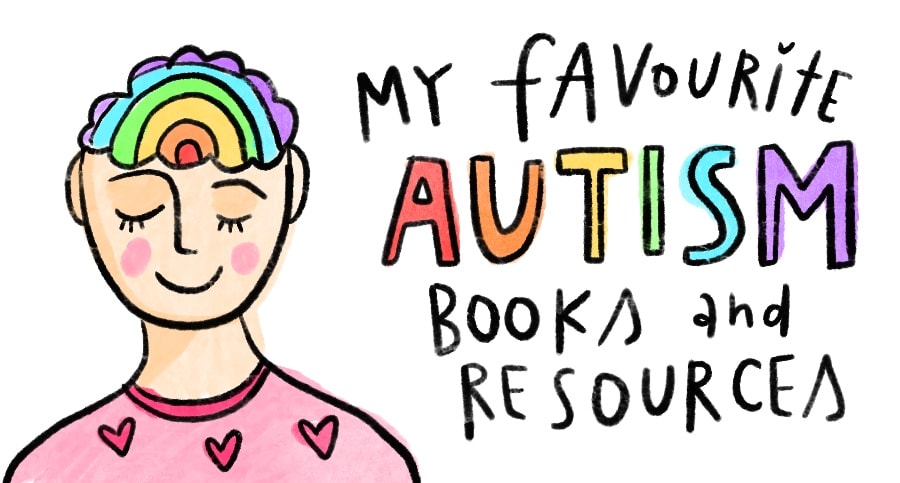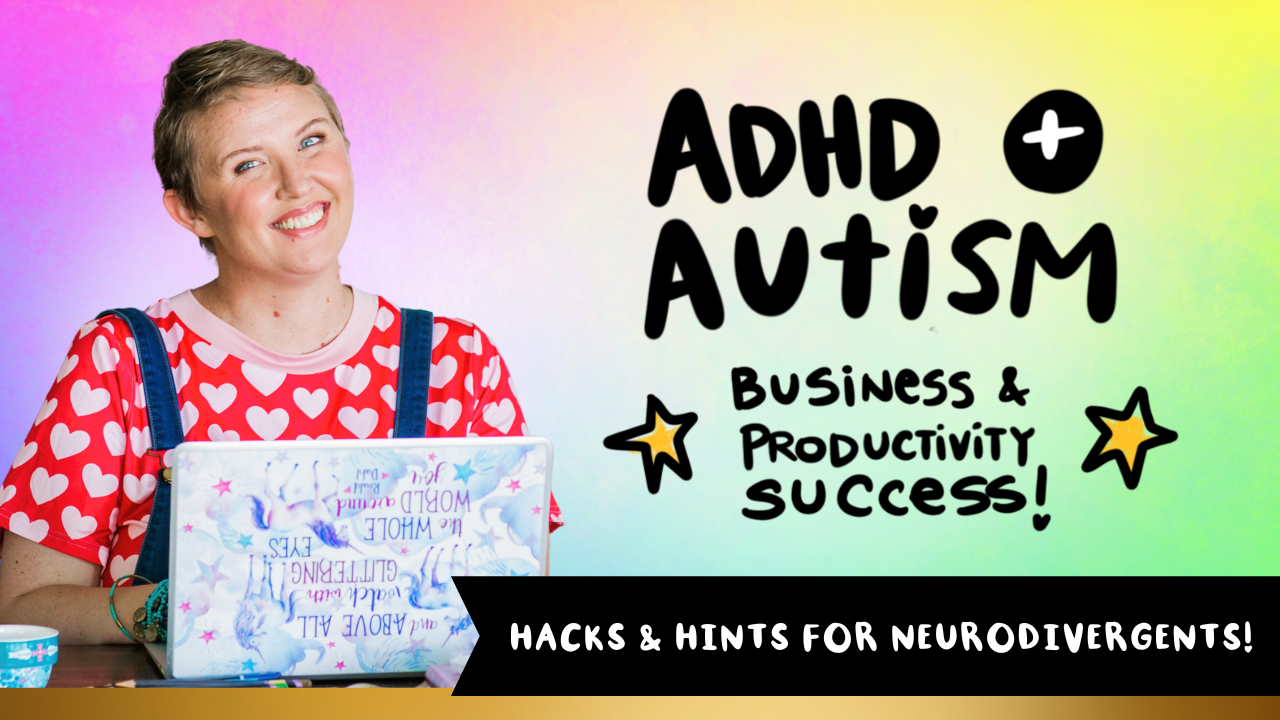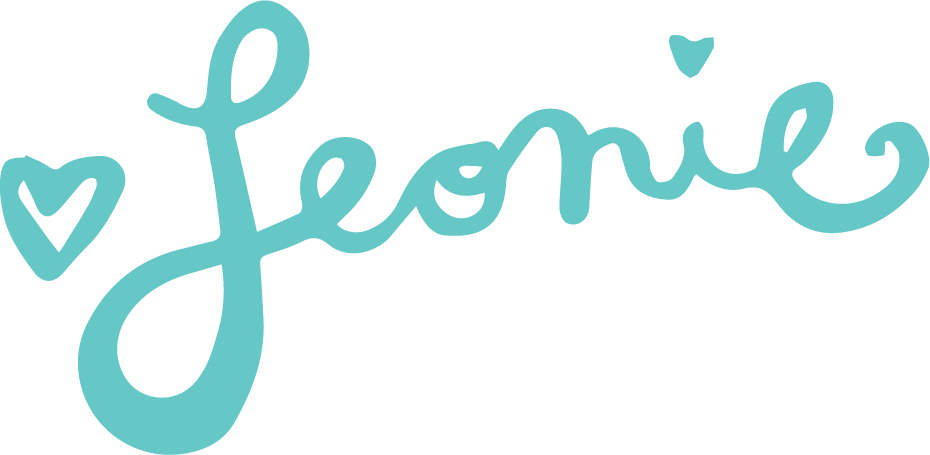
Pooky bears,
This is my regularly updated resource post for all things neurodivergent… my favourite books, checklists, resources, how I got diagnosed and all my blog posts about it too.
I also have a workshop where I go into even more detail:


Autism Online Tests & Checklists
- Tania Ann Marshall’s Adult Female Profile of Autism
- Females with Aspergers Non-Official Checklist
- I haven’t tried the Aspie Tests here, but have friends who found it useful.
Autism does not usually appear the same in females as it does for men.
Females usually have different characteristics, and are FAR less likely to be diagnosed. This is for a range of reasons – a lot of medical professionals are only aware of the male characteristics of Autism, and female autists tend to “mask” their behaviour socially to appear normal by copying other people’s behaviour.
We are NOT female Sheldons. If you are considering Autism and are female, make sure you look at the female checklists for Autism, and if you go for an official diagnosis, make sure it’s with a person who is fully educated about Autism especially in females.
What I’ve written about having Autism:
- Aspie Goddess
- What I do when I’m in Autistic shutdown
- ASD AF: My official diagnosis
- How I navigate my Autism on a business photoshoot
- Autism: What helps (free poster)
- Trialling CBD oil for my Autism (part of a larger blog post)
Books on ASD
- I am AspienWoman by Tania Marshall
- Aspergirls by Rudy Simone
- The Asperkid’s (Secret) Book of Social Rules
- Camouflage: The Hidden Lives of Autistic Women
- The Complete Book of Asperger’s Syndrome by Tony Attwood
- The Autistic Brain by Temple Grandin
- 22 Things a Woman with Asperger’s Wants Her Partner To Know by Rudy Simone
- Invisible Differences – a graphic novel by Julie Dachez
- Different, Not Less by Chloe Hayden
Awesome ASD peeps who are rad ASD educators:
Other Resources On Neurodiversity
How I got diagnosed
I self-diagnosed myself in 2014 after reading female Aspergers checklists and feeling like my whole inner world and history had been exposed on paper.
At the time, I received some criticism that I should not speak about my Autism unless I’d been formally diagnosed.
When I finally did get diagnosed six years later, my diagnosing psychologist said:
“Please know that self-diagnosis is still valid and important and should not be dismissed. For most people around the world, being able to receive an official diagnosis is impossible due to lack of funds, the long waitlists for diagnosis and/or lack of access to available psychologists who are able to diagnosis, especially when it comes to diagnosing ASD in women.”
I decided to go through the diagnostic process in 2020 to confirm.
I went through Unique U Psychology in Melbourne which specialises in ASD in women and girls. It was done via telehealth.
The assessment cost $1,000 to do. I was on their waitlist for about 6 months before I could do my assessment.
Here’s what the assessment looked like:
- An 8 page application form to fill out
- A 3 hour assessment (via telehealth) where I had to answer a lot of questions about my childhood, personality traits, preferences and relationships. The assessment is done by a psychologist.
- Afterwards, I had to complete about 8 questionnaires that measure and test for different things. One included a questionnaire to be completed by a caregiver from when you were a child.
- My diagnosing psychologist also asked for the contact details of my closest friend to ask her some questions and get a holistic perspective.
- A few weeks after the original assessment, we had our 1 hour review to discuss the diagnosis. My psychologist said: “Congratulations, you are on the Autism Spectrum.” Me: “WOO! WHAT A RELIEF!” My diagnosis was Autism Level 1 (meaning I need the least level of support). Still a strong Autism diagnosis however – I needed 65 points to qualify, and I got 135. Fucking NAILLLLED IT GUYZZZ. I don’t know why I feel so chuffed about this. Ha! I am also low level ADHD, but the Autismz is my primary diagnosis.
Some more things to discuss about diagnosing:
- Unique U Psychology are fairly exhaustive in their assessment (clearly). They are checking whether you’ve got something else entirely different, and for comorbidities (aka whether you’ve ALSO got a bonus complimentary condition! A wee 2 for the price of 1 neuro atypical!)
- ADHD & Autism can be misdiagnosed for each other, and they can also co-exist together as comorbidities.
- Not every joint follows the same diagnostic process as the above. I have a friend who was diagnosed in one 30 minute session with a psychiatrist.
- In Australia you may be able to get Medicare funding for the assessment – check with your doctor.
Notes
- Some of these books and some of my earlier writings use the terminology of “Asperger’s” instead of Autism or ASD (Autistic Spectrum Disorder). Asperger’s terminology has a problematic past, and is no longer considered a separate diagnosis from ASD. The use of Asperger’s terminology can be hurtful to some members of the ASD community.
- Some of these books and some of my earlier writings also use the terminology of “high-functioning”. I now know this is problematic, and causes pain to other members of the ASD community.
- Some members of the ASD community also are pushing for a change in terminology of Autism Spectrum Disorder to Autism Spectrum Condition (ASC). I really love this. I don’t feel like my autism is a disorder. It’s just how my brain is set up, and I love the way it is set up!
- You will notice that many people with Autism refer to themselves as autistic, instead of using person-first language like “I have autism.” For example, a person with cancer doesn’t call themselves a cancerous person because it is not their whole identity. However, some people with Autism prefer to call themselves autists because it does form their identity and can’t be separated from the condition. For most conditions and situations however, person-first language is appropriate. So if you’re talking about someone with autism, use that language instead of “autistic” (unless that person asks specifically for it.) Read more here.
Resources on ADHD
People with ASD often have ADHD as well – I do!
Here is the blog post where I documented being formally diagnosed by a psychiatrist.
Here’s some resources just on ADHD specifically.
- Order from Chaos: The Everyday Grind of Staying Organised with Adult ADHD by Jaclyn Paul
- Organizing Solutions for People with ADHD by Susan Pinsky
- Thriving with ADHD: A Workbook For Kids by Kelli Miller (I used it for myself)
- How To Keep House While Drowning – KC Baker
- Button Pusher by Tyler Page
- Struggle Care
- Searching #adhd on TikTok is actually amazing as an educational resource!
I so hope this was helpful!
I’ll continue updating this post as I research & read more!
Big love,

Last updated: 18 April 2024
Check out my companion workshop:









